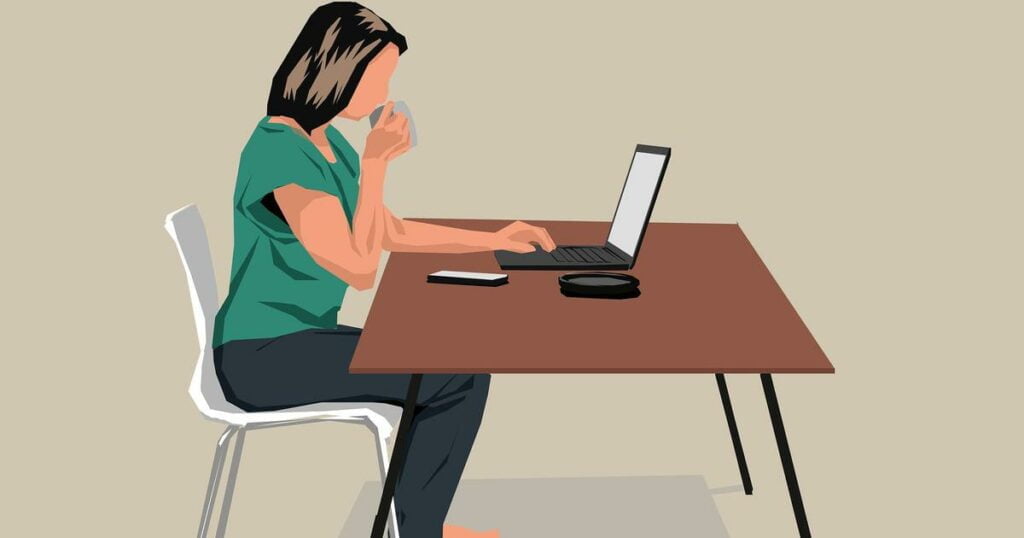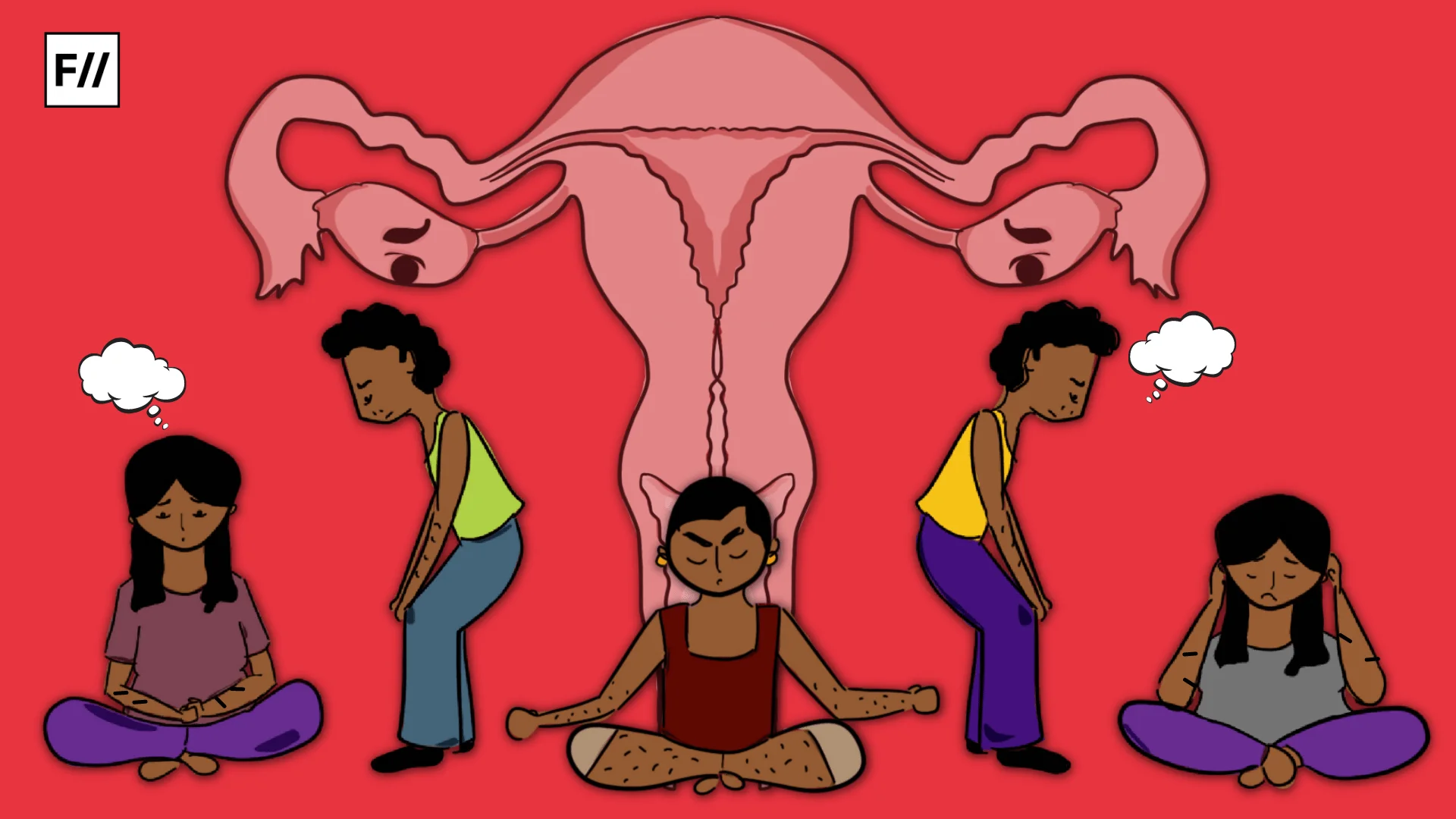Announcement of menstrual leave by any government or organisation must be understood from human rights standpoint. This is inhumane to insist someone who is in pain or discomfort to come to work and perform her assigned duty. This provision has the potential to promote women’s Right to Rest when they undergo menstrual-cycle-related illness. Women would be able to take necessary rest every month to maintain their physical and mental well-being.
Menstrual leave would help to ensure a gender-just environment at workplaces and educational institutions by recognising a biological process accompanied by physical discomfort thereby catering to the needs of women’s bodies. Resistance to menstrual leave legislation arises from a male-dominated work culture that is designed to cater to male-body needs. It shows a lack of sensitivity to the needs of women’s bodies.
Some countries like Japan, South Korea, and Italy have implemented a menstrual leave policy which allows women to take time off for a few days every month. Indian legislative system has been fairly backward in introducing the menstrual leave policy. Bihar is the only state which has been providing two-day menstrual leave to women employees since 1992. The Kerala government has recently announced the provision of menstrual leave to female students in all state universities under the Department of Higher Education.

Menstruation Benefits Bill, 2018 was also tabled in the Indian parliament but due to the lack of political will and narrow-mindedness of our legislators to move forward with the concept of menstrual pain leave, it couldn’t gather the necessary attention. Though there may not be strong policy measures in place, several companies and start-ups across India have voluntarily adopted menstrual leave policies at the workplace. Gozoop and Culture Machine, two Mumbai-based companies, became the first private companies in 2017 to introduce menstrual leave in India. Tata Steel, Zomato, Swiggy, and Byjus also came forward to introduce similar policies.
Also Read: Why We Need A Menstrual Leave Policy In India?
Making women’s work-life easy
When an institution or organisation grants menstrual leave, it shows its concern and care for employees. It’s just like asking someone to rest or offering a restroom at the time of illness which would in fact increase an organisation’s productivity and efficiency.
The provision of Menstrual leave should be seen as a necessary step to address bodily complications such as severe pain and loss of energy that women undergo during menstruation. Opponents view this initiative as one that may discourage employers to hire women employees thereby reducing their chance of recruitment and promotion at the workplace.
On 24 February 2023, Supreme Court also refused to entertain a PIL filed by Advocate Shailendra Mani Tripathi seeking menstrual leave for female students and working women across India. Chief Justice DY Chandrachud made the remark that “If employers were compelled to grant menstrual leave, it may disincentivise them from hiring women employees.”

I don’t believe that a natural body phenomenon should be a reason for anyone to discriminate while hiring women. Though no adequate research has been undertaken on the correlation between menstrual leave and women’s employability. Companies which have experience in the implementation of such a policy pointed out that the policy does not hamper business and reduce women’s employability.
In an article, Rohan Bhansali, Co-founder of Gozoop, while sharing his observations of no correlation found between women’s employability and menstrual leave, stated that their company has witnessed an increased share of women in total employee strength since 2017. The provision of menstrual leaves has not affected the company’s business in any way and proved beneficial to build a sense of pride not only for women but also for male employees. The policy has never become a cause of concern while hiring women.
Also Read: Period Leaves And Prejudices: Taking Days Off Without The Fear Of Losing Opportunities
In the same article, Ameesha Prabhu, Chief Executive Officer for TRRAIN (Trust for Retailers and Retail Associates of India- train employees for the retail industry), while sharing his experience of working with numerous retailers, mentioned that “I have not heard anyone who showed reluctance in hiring women because of menstrual leave.”
Ankesh Chaurasia, Co-Founder and Chief Marketing Officer, of Public Relations and Advocacy Group (PRAG), Gurugram stated in a column published in The Hindu, that, the productivity of female employees has increased by 30-40 per cent since the time his company started to offer Periods Leave. Any cost that is being paid by his company is an increase in productivity.

Aditi Gupta, Co-Founder of Menstrupedia, Ahmedabad (a start-up that educates people about menstruation) mentions in the same article that their organisation has been granting Periods Leave for the past 5 years or so and this provision hasn’t affected the organisation’s functioning and efficiency in any way.
Thus, menstrual leave can prove to be an effective measure to create a gender-just environment at the workplace without having any detrimental effect on their career prospects. When several efforts are being made to make workplaces gender-inclusive, the basic issues of sanitation and hygiene must be discussed.
A concern of cleanliness must be addressed as a priority
Undoubtedly, announcing Menstrual leave is an incredible move to make women’s work-life easy by granting them some rest days during times of discomfort. It would help to ensure better working conditions for women. The question is- does the offering of menstrual leave enough to make the workplace gender-inclusive? If we really want to take women-friendly measures in the workplace, we need to think over- do we have separate toilets for men and women in the workplace, schools, and colleges. Are these toilets functional and clean? Are these toilets well-equipped with essentials like trash cans, toilet paper, pads, and handwash?

Many school and college-going girls prefer to take a day off during menstruation not because they have painful periods or experience heavy bleeding but because they can’t use washrooms due to unhygienic conditions. We need to bring up the issue of maintaining cleanliness and hygiene and make sure to address these basics first.
Normalising conversation around menstruation
The last decade has witnessed the making of a menstrual movement in India where women are speaking up openly about menstruation by realising it is a ‘sense of pride‘ rather than a ‘matter of being hidden’. Men also took initiative to talk about menstruation in public without lowering their voices. This campaign caught pace in the last many years when India has seen an array of movements aiming to educate women about menstrual hygiene and sanitation.

Amidst these innovative measures, menstrual leave may further help to break long-standing taboos attached to menstruation and normalise talks around it. The recent announcement made by the Kerala government and the voluntary adoption of the menstrual policy by some start-ups has led to a widespread conversation on menstruation. The initiative has sparked a fierce debate in the public sphere on the pros and cons of the policy thereby normalising the conversations around menstruation to an extent.
Celebration of ‘Periods with Pride’ not to be forgotten
Change of attitude and perception towards menstruation is very fundamental to de-stigmatise menstruation. It needs to be urgently discussed- How do we regard Menstruation? The provision of Menstrual Leave must not be accompanied by the victimisation of women. We need to answer this- How will a woman on Menstrual Leave be perceived by others at her workplace?
We have to make sure to share the private details of a woman not to become a subject of mockery by her fellow workers. Without thoughtful implementation, the menstrual leave policy cannot leave positive effects on the status and well-being of menstruators. Levitt and Barnack-Tavlaris argue that without addressing underlying sexist beliefs, attitudes as well as gender discrimination, menstrual leave could have negative effects.

The celebration of menstruation as a symbol of fertility and creativity is something which should be promoted, not to be forgotten. Otherwise, menstruation will continue to be taken as a nuisance, shame and a source of embarrassment, rather than as pride and a source of empowerment. Creating awareness and providing menstrual education to the masses is necessary to change perceptions and mindsets towards menstruation.
Also Read: Closely Looking At The Denial Of The Public Interest Litigation For Menstrual Leave
The idea of Menstrual Leave is a progressive and reformist move. It is a pivotal step to easing women’s life and working conditions and normalising conversations around menstruation. Apart from policy legislation, it is our duty to normalise this naturally occurring process. Only then policy changes and periods leave legislation can work effectively to combat discrimination and insensitivity towards menstruation.
References:
- Addressing Menstruation in the Workplace: The Menstrual Leave Debate by Levitt RB, Barnack- Tavlaris JL.
- The Period Leave Debate: Deserving or Not? The Hindu, magazine, 5 March 2023.
- It is Raja Festival, Let’s Talk about Periods, Gender Justice, Oxfam India, by Rukmini Panda.
- Sustainable Menstruation in India: “Greening the Red” by Rashi Rathi.
- Shailendra Mani Tripathi v. Union of India and Ors. WP(C) No. 172/2023, Supreme Court of India.





